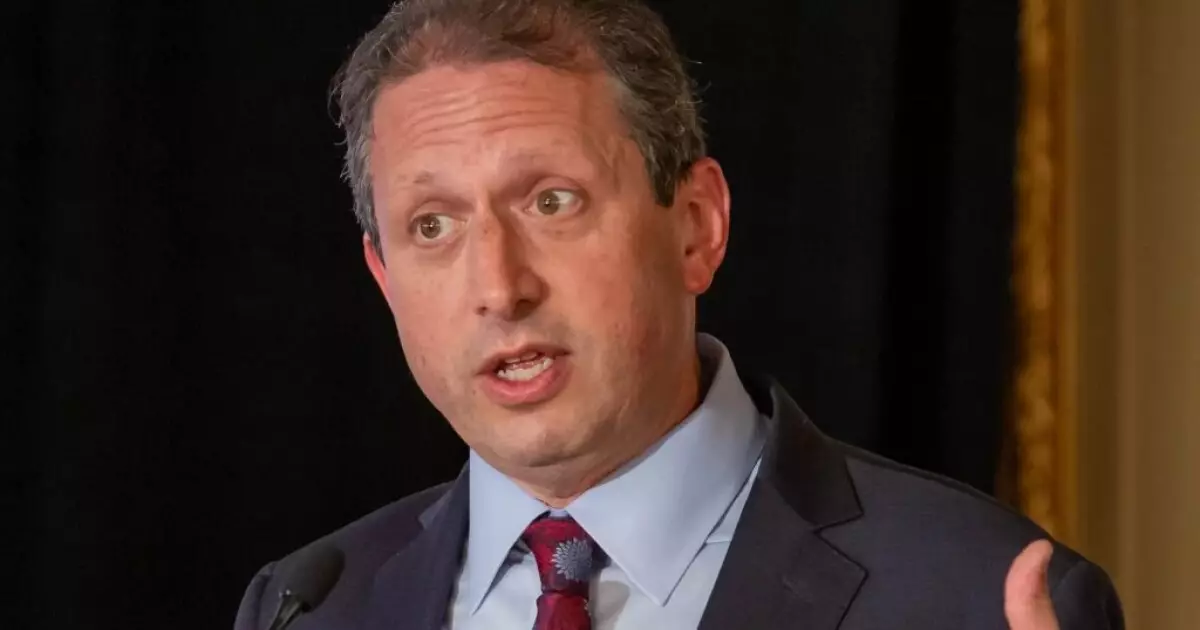In a bold move that could set a precedent for institutional investors nationwide, New York City Comptroller Brad Lander has voiced support for a policy aimed at excluding fossil fuel infrastructure from the city’s pension investments. This initiative, if adopted, would position the New York City Employees’ Retirement System, Teachers’ Retirement System, and Board of Education Retirement System among the first significant pension funds in the United States to steer clear of midstream and downstream fossil fuel investments in their private market portfolios. This decision highlights an evolving understanding of the intersection between climate risk and financial stability.
At the heart of Lander’s argument is the notion that climate risk is inherently tied to financial risk. He emphasized the necessity for investors to adopt a systemic risk perspective, acknowledging the impending threats posed by climate change not only to environmental health but also to investment portfolios. His assertion underscores a growing recognition among investors that the traditional view of risk must now integrate environmental considerations. As climate events become more frequent and severe, the financial implications could prove staggering for entities that underestimate these risks.
The three pension funds have a staggering $285 billion in assets under management, making this policy particularly impactful. By aligning their investment strategies with climate-conscious principles, these funds signal to the financial market that a seismic shift is underway. This pivot not only showcases a commitment to sustainability but also serves as a calculated financial strategy, given that fossil fuel investments may become increasingly fraught with risks as global energy systems evolve.
Lander’s proposal builds on previous actions taken by these pension funds, which have already demonstrated a commitment to reducing carbon emissions. In 2022, they successfully divested from fossil fuel reserve owners within their public equities portfolio, setting a strong precedent for their recent initiatives. Additionally, the adoption of a Net Zero Implementation Plan in 2023 further exemplifies the funds’ dedication to mitigating their carbon footprint. The upcoming presentation of this policy to the trustees of the pension funds in early 2025 reflects a systematic approach to re-evaluating their investment portfolio through an environmental lens.
While last year’s trustees’ vote marked a significant step in excluding upstream fossil fuel investments—focusing on exploration and extraction—the new proposal broadens their scope to include infrastructure assets such as pipelines and liquefied natural gas (LNG) terminals. This shift represents a growing awareness that the impacts of fossil fuel dependency extend beyond the initial extraction processes, affecting entire supply chains and capital structures. However, the pension funds will still retain their existing investments in fossil fuel infrastructure for the time being, raising questions about the timing and strategy of divestment.
As Lander and his Bureau of Asset Management prepare to conduct a comprehensive assessment of the current midstream and downstream infrastructure holdings, the financial implications could reshape future investment strategies for these funds. The decision to divert $11 billion toward “energy and climate solutions” reveals a proactive approach to respond to the challenges posed by climate change. Such investments highlight a burgeoning opportunity for financial institutions to pivot toward renewable energy and sustainable projects.
Comparatively, New York City’s dedication to distancing its pension investments from fossil fuels starkly contrasts with the policies adopted by several Republican-led states that favor fossil fuel financing. These divergent approaches open a broader conversation about the future of sustainable investing, indicating that institutional investors are increasingly willing to take a stand on environmental issues, even in the face of potential pushback from mainstream political factions.
As New York City’s pension funds move forward with this transformative policy, they stand at the forefront of a national trend in sustainable investing. This initiative not only reflects a changing tide within financial frameworks but also urges other cities and states to consider the long-term consequences of fossil fuel investments. With a mounting emphasis on environmentally responsible investing, the conversation surrounding climate risk in relation to financial stability will undoubtedly continue to evolve. The decision by New York’s pension funds stands as a clarion call for a more sustainable approach to investing and a recognition that the future of finance is inextricably linked to the health of our planet.

